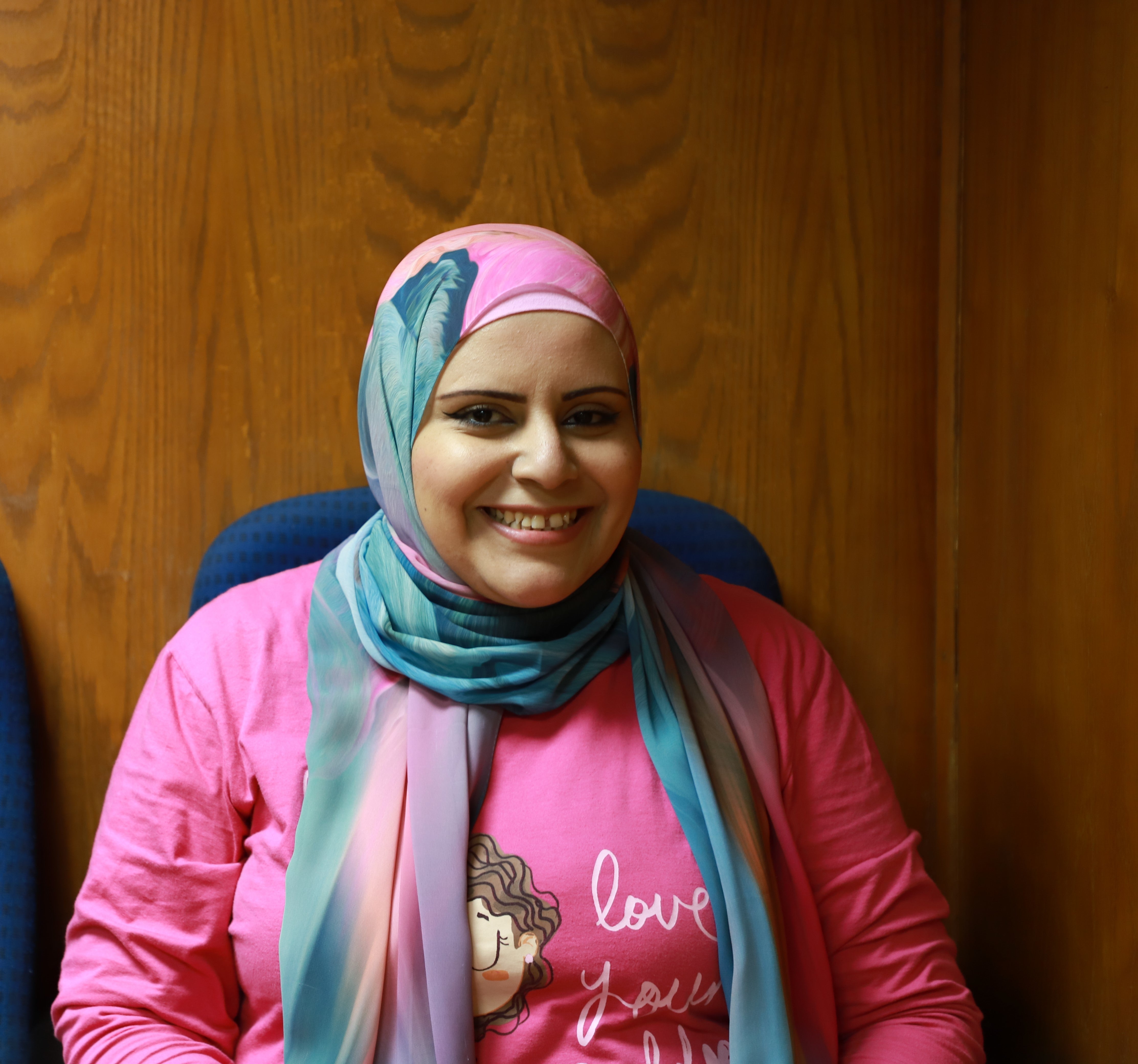In the words of Sara Ibrahim: “My journey as a service provider is a pathway to hope and healing.”
Date:
Sara Ibrahim, a 33-year-old clinical psychologist, works in multiple psychiatric clinics. She received her Bachelor of Arts in Psychology and a Master of Arts in Clinical Psychology from Helwan University. Currently, Sara is pursuing her doctoral thesis at Ain Shams University.
Sara is one of the students currently enrolled in the first professional training programme in Egypt for psychosocial support and case management for service providers to address violence against women and girls. This training programme, launched in June 2023, is being implemented by the National Council for Women (NCW), represented by the Women’s Complaints Office (WCO), in partnership with the Department of Psychiatry at Al-Kasr Alainy Hospital, Cairo University and in collaboration with UN Women Egypt and the European Union Delegation to Egypt. The development of such a training programme falls under the framework of national efforts to continue strengthening the services provided to women survivors in line with the National Strategy for the Empowerment of Egyptian Women 2030.

“I came across the announcement for the training programme just before the application deadline. I quickly reviewed the details and felt compelled to apply. Given my educational background, I have always been passionate about learning more about psychological disorders, but I had never found a training specifically tailored to deal with the survivors of violence or women subjected to violence.
When we talk about supporting survivors of violence, it's crucial to take a holistic approach. Psychosocial support is all about creating a safe space for survivors to heal emotionally and mentally. It's about providing empathy, active listening, and validation, which is precisely what we’re learning in this training programme.
During the initial two months of the training, we delved into the intricacies of differentiating between women experiencing current challenges, those dealing with underlying disorders, and those struggling with the aftermath of trauma. We learned more about how each survivor's experience is unique, and how service providers should recognize the importance of providing individualized support. Services providers must tailor their approaches to meet the specific needs and preferences of the survivors, ensuring that they receive the most effective assistance possible.
The legal component of the training was the most challenging for me, as it was the first time for me to learn about it. I now understand the legal rights that the survivors are entitled to when subjected to violence and how these rights are different depending on the specific form of violence. We also learned how to work with the survivors to gather evidence, document incidents, and provide testimonies, which contribute to holding perpetrators accountable for their actions. This process helps survivors seek justice and confirms that violence is not tolerated or accepted in the society.
As a service provider, I often encounter the challenge of women not fully completing the therapeutic intervention. This means that they may attend one or two sessions and then stop, often due to external factors such as stigma and shame imposed by their [husband, father, or brother}. This challenge emphasizes the importance of raising the community’s awareness about the significance of psychological support and its positive impact on the lives of women and girls. It is crucial that women have easy access to information on how to report and access support, which should ideally be made available free of charge for individuals who are unable to afford it.
Ultimately, I dream to contribute to creating a compassionate and inclusive society where psychosocial support is readily available to all, promoting mental well-being and resilience for everyone.
Our role as service providers is to adapt and be flexible [following the survivors’ needs] …We need to be creative in finding innovative solutions that address the diverse needs of survivors. My journey as a service provider is a pathway to hope and healing".